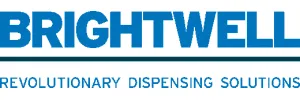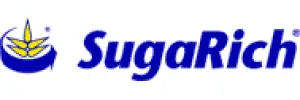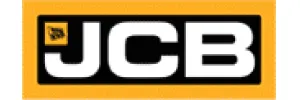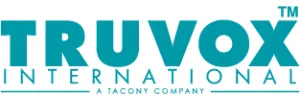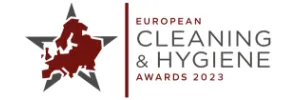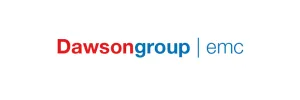News & Insights
Read the latest news from us and our clients across the globe

Posted on 30 December 2010 by adtrak.admin
Train to gain
When global FM provider Johnson Controls Global WorkPlace Solutions decided to invest in the training of its cleaning service staff some years ago, it turned to the British Institute of Cleaning Science (BICSc) for the standards and qualifications it required. Mike Fletcher, Director of Cleaning, EMEA for Johnson Controls Global WorkPlace Solutions, discusses the benefits of training as a means to reinforce the company’s service offering and gives his view of how the updated BICSc Training Verification will help the Industry.
Mike Comments
“The success of Johnson Controls can be attributed to the commitment and dedication of our 130,000 employees around the world. And this combined with a continued focus on growth means that we are a company where employees can express ideas, make a difference and build their future.”
A key focus of our workplace is to emphasise integrity and ethics. We look to help our employees grow, we believe it’s vital to strengthen their engagement and develop their skills and leadership capabilities. This is done through an environment that welcomes diversity of thought and experience.
Commitment to training
Our genuine commitment to training works for us. It has to add value as far as we are concerned. We’re prepared to do whatever it takes to make sure that our members of staff are fully trained. It’s very important to us.
We are committed to training and Johnson Controls is a people-orientated company. We are fully aware that the facilities management sector is all about its people and ultimately the service and professionalism they provide. We are measured by the service we provide on any given day and as such we cannot afford to make mistakes. With this in mind, we decided to reinforce one of our soft services – Cleaning, by training our own in-house cleaning teams. By doing this we have been able to increase productivity and reduce our costs. However, we are not a Cleaning training specialist and so decided to approach the British Institute of Cleaning Science (BICSc) for their expert knowledge on training standards and qualifications. We did this to be 100% certain that we were receiving the professional level of training our company required to keep competing in an ever more demanding marketplace. We also wanted to be sure that our training needs were accredited to both UK and international standards, and through BICSc’s new accreditation scheme this is possible.
The best way forward
It was an easy choice to approach and work with BICSc as I had previously used the BICSc training system in roles at other companies before. I found that by having trained staff, it gave greater productivity and the ability to provide a better service. When working at Hampshire County Council, I successfully implemented the BICSc COPC training system and I am now repeating this programme at Johnson Controls.
As a Council member of BICSc for over 20 years and a Fellow of the Institute, I believe wholeheartedly in the aims of BICSc, which is essentially raising the bar in standards and education for cleaning to help improve the public’s perception of the industry. It is no longer a secondary, unseen service, but an integral part of the FM offering and its ever-expanding remit of responsibilities.
In-house training method
Here at Johnson Controls, our updated in-house training scheme applies to our own Cleaning staff. There are currently over 600 full time Cleaning Operatives employed by Johnson Controls as well as many more provided by our preferred suppliers. I have the expectation that service providers will measure up to this training standard. Their members of staff are expected to be at least as good as our own.
A BICSc-registered training provider undertook the training of our cleaning managers and support staff. These staff were trained to assessor level and they cascaded the training to our staff. Once this training was completed and accredited by BICSc, we were registered to train our own staff. And from that point onwards we have successfully trained our own staff in-house. The new Regulating System recently introduced by BICSc will further ensure that the delivery of training is to the high standard required. It is an innovative approach and one that will ensure we are always at the top of our game.
In order to meet the demands of BICSc accreditation, I have appointed a lead assessor who is responsible for the company maintaining and achieving the accreditation. She works to make sure that all of our training and assessment is completed to BICSc standards. This also ensures a continuous programme of training is in place and that we as a company, and as individuals, are regulated to make sure all qualifications are correct and up to date.
Throughout this process, we have learnt that trained staff improve productivity. The element of Health and Safety that is covered within the training is also essential in ensuring staff, colleagues and clients are kept safe.
Training and the resultant productivity and safety awareness ensures that we are commercially in line with other service providers. Whilst our in-house portfolio is only a small part of the total cleaning delivery within Europe, Middle East and Africa, the trained staff set a benchmark for our Cleaning Suppliers to be measured against, and my expectation is that all staff should be trained to that benchmark.
Training specifically structured
BICSc training is specifically structured for cleaning with more than 40 different cleaning tasks in the Cleaning training programme. We choose the suitable tasks required within the individual specification agreed with the Client. And whilst there are always mandatory tasks required such as washroom cleaning, tailored specifications will call for staff training specifically for that location. There are generic tasks such as mopping and others which are specialist such as sealing of floors. It’s about reaching and maintaining standards and BICSc training is the main weapon to achieve these standards and to make sure that these are carried through. Wherever we provide cleaning, standards are maintained.
Specialist areas covered
The majority of cleaning that we undertake is normal office or industrial cleaning. But we do also cover some specialist tasks such as carpet cleaning and the cleaning of high risk and high profile locations such as data centres and other Critical environments. We have to be able to accommodate and supply the training for all these areas.
The advantage of BICSc is that the whole suite of training has been developed, and we can pick the tasks and choose dependant on the location. It is this approach that allows us to cater for the wide variety of clients we have in the UK and globally.
The benefits
There are many benefits to having in-house and trained cleaners. I look to and expect our in-house trained staff to set the standard for our external suppliers.
This can now be recognised through the accreditation of our cleaning and our people. A certificate gives them recognition of further skills and can also lead people on to new challenges. For example, one manager at Johnson Controls started as a cleaning operative and went through BICSc certification. It encouraged her and she realised that she wanted to progress further. Training, for me raises the profile of the cleaning operative and gives them professional recognition, which in turn is a real motivational tool.
The future
For Johnson Controls this is not a one-off project. We will continue to invest in regulated professional training for as long as we provide cleaning as part of our offering.
With our own lead assessor now answerable to BICSc to maintain the required standards, we see this as a step forward in our commitment to the Institute. This will continue and we will work alongside BICSc as long as it is beneficial to all parties.
Finally, the investment we have made in our in-house training really adds value to our services. Cleaning represents a significant part of business. We have 46 service lines and cleaning represents a significant part of our high profile soft service offerings along with security, engineering and catering. Everything needs cleaning!
Following section to be inserted as break-out box.
BICSc setting and regulating standards
BICSc has recently launched new accredited cleaning systems standards for cleaning equipment and systems manufactured by its corporate members. These standards have been designed to provide all areas of the cleaning industry with an assurance of excellence that has been independently tested and verified, and to provide a means of judging the quality and effectiveness of products and systems available in the professional cleaning market.
Established in 1961, BICSc is a leading professional and educational body that exists to promote and advance the knowledge of the science of cleaning, and to raise standards. The Institute has 5,000 individual and corporate members across all areas of the cleaning sector, including local authorities, contract cleaners, manufacturers and suppliers, training organisations and cleaning operatives in the UK and overseas.
Stan Atkins, chief executive officer of the Institute, said:
“With almost four decades experience of improving industry knowledge of cleaning science, BICSc is the natural leader in the education of those in the cleaning industry. Our mission is to sustain and protect the safety of the built environment and to ensure that equipment and systems used for cleaning are safe and effective for the uses and the occupants of the buildings being cleaned.”
“Cleaning is gaining a reputation in the FM sector as not just an add-on service, but an integral element of the total solution. Cleaning standards therefore have to be improved and one way for FM companies to achieve this is by gaining national accreditation. BICSc is proud to work with any company that wants to
provide professionally recognised and accredited staff.”
ends
As published in Premises & Facilities Management magazine.
For press enquiries please contact:
Ceris Burns – Ceris Burns International t: +44(0)1825 714329
e: ceris@cbimarketing.com www.clean.cbimarketing.com
Experts in Public Relations Services & Communications Management
Our ServicesGenuine industry specialists in cleaning and hygiene, environmental and recycling, and facilities management
Our Sectors
